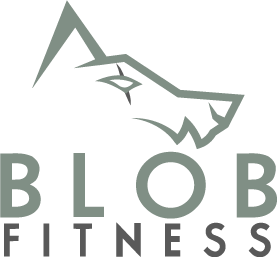
Warming up before a workout is something that is important to do before any workout. There are plenty of benefits to it, but some people have many different warm-ups than others. Some people would warm up with just the exercise they're doing in general. Others warm up doing static stretching, dynamic stretching, bodyweight exercises, etc. taking overall 30 - 40 minutes. So what is the right way to warm up? Before we get into that, let's discuss some of the benefits of warming up before a workout.
Benefits of Warming Up Before a Workout
The first thing is first, why should you warm-up before a workout in general? Well, it has plenty of benefits to it, but the main benefit, in my opinion, is that it leads to a lower risk of injury(1).
If you've been injured, you already know it's something that can derail your progression overall. You can always overcome that injury and setback with the proper tools like BFR training but it still may take sometime before you're back in the full swing of things. I'm always for lowering the risk of injury and warming up plays a big factor in that.
Another benefit of warming up is that it can help increase your range of motion. Personally, I have terrible mobility overall, it's something I'm consistently working on to try and get better. I know for some exercises if I don't have the proper range of motion I will most likely injure myself or not get the same benefit of the exercise.
What's the Goal of a Warm Up Before a Workout?
The main goal of a warm up is to get your heart rate up, get your blood and oxygen flowing more and increase your range of motion. Any time you're warming up, you would want to check off those 3 boxes:
- Is my heart rate at an elevated, but not super high level (around 100bpm, but will depend on your overall fitness level)
- Do you feel like you're warmer in general?
- Are you feeling looser and will have the ability to perform your exercises without as much restriction?
Once those boxes are checked off you should be good to go.
How Should You Warm Up Before a Workout?
Like I mentioned before, people have varying different techniques to warming up. Some people spend up to 30 - 40 minutes warming up. Others will warm up with some compound movements with lightweight and move right into it. For example, some people will warm up for bench press, by just bench pressing the bar for a couple of sets at high reps and a slow tempo.
What's the best way for you to warm up though? Do you need a 30 minute warm up? or should you just be warming up with the exercise? Well, it depends.

When You Should Have a Longer Warm Up
There are cases you should potentially be warming up a bit longer to help decrease the risk of injury and to increase your range of motion.
Here is a perfect example for me. My lower body in particular is always fairly tight. Ankles, calves, hamstrings, quads, and hips. So if I just try warming up for Squats with just the bar, it's usually not the best thing for me because I won't even be able to squat the bar with proper form on my first couple of sets. Even if it does get better and I start loading the bar with weight, it still doesn't feel quite right. Times I have tried to warm up with just the bar, I've actually ended up with some minor tweaks. So now, I'll take some time and do some dynamic stretches for all of the above movements above until I feel like I've hit an adequate level that I can put the barbell on my back and squat without much issue. Usually, a warm up before squats takes me about 15 minutes.
If you're someone who struggles with mobility and range of motion with the exercises you'll be hitting in the workout, it will more beneficial to have a longer warm up to decrease the risk of injury.
I do want to note a word of caution though. If you're powerlifting or someone who's trying to hit heavyweight, a long warm up can make you more fatigued overall and you may not be able to lift as much. Your performance may overall decrease that workout. In my opinion, I rather have decreased performance than an injury.
When You Should Have a Shorter Warm Up
If you can perform the exercise as a warm up with a range of motion not being an issue, you can likely shorten your warm up to just the exercise and maybe some quick dynamic stretches.
Another example for myself is when I bench press. I don't normally have to do too much for a bench press warm up. I'll do some quick arm circles and jumping around for a couple of minutes and then I'll warm up with the bar for the bench. I don't normally have to do too much and it only takes about 10 minutes until I'm at my working set for bench press. (Working set meaning the intended weight for reps for the workout).
Compound vs Isometric Exercises
I've been talking mainly about compound movements (squat and bench press) but what happens if your workout consists of mainly isometric exercises like bicep curls and tricep kickbacks? You probably won't need to warm up too long in cases like this. You most likely can hit those 3 checkboxes I mentioned in the 'What's the Goal of a Warm Up?' section pretty fast or with just the exercises in general without risking many injuries.
Do I Need to Warm Up for Every Exercise?
What happens if you're doing multiple compound lifts in your workout? Do you need to warm up for every exercise? Most likely, no. You should be good to just warm up before the workout in general and then do warm up sets for your exercise. Again though, this is subjective to your body composition, and if you're struggling with a range of motion in areas for your exercise that can potentially lead to injury.
For example, if I'm doing squat, bench, and deadlift on the same day. I'll warm up for squat, by the time I get to the bench I'm only doing warm up sets with the bar. When I get to deadlifts though, I'll just do some quick core exercises to get get some good core stability and get into it.
Tips on Warming Up
Personally, my go-to warm ups focus on increasing range of motion in areas that are limited by doing dynamic stretches (only in severe cases, static stretching) and usually doing some stability work if I'm doing compound exercises like squats or deadlifts. Depending on the exercise though and your range of motion limitations, a dynamic stretch for you can just be doing warm up sets at a lightweight for the exercise. If you're looking for a good leg day warm up, I highly recommend checking this out.
Final Thoughts
Long vs short warm ups before your workout are subjective and really depends on your body. For most, you may be able to do some dynamic stretches and move right into some warm up sets and get into your working sets. If you have more issues in your range of motion, you may need to warm up longer to target those nuance areas. Longer warm ups will tend to lead to more fatigue and overall lower performance if you're lifting heavy weight. In my opinion, I will rather be moving less weight with better form than more weight with crappy form.
As long as you're able to hit an adequate range of motion for your lift and you generally have a higher than normal resting heart rate and you're feeling warm and loose, you should be good to start your workout/exercise!
Photos:
- Photo by Victor Freitas from Pexels
- Photo by Ketut Subiyanto from Pexels
References:
- LaBella CR, Huxford MR, Grissom J, Kim K, Peng J, Christoffel KK. Effect of Neuromuscular Warm-up on Injuries in Female Soccer and Basketball Athletes in Urban Public High Schools: Cluster Randomized Controlled Trial. Arch Pediatr Adolesc Med. 2011;165(11):1033–1040. doi:10.1001/archpediatrics.2011.168
Get a Free Guide!
Similar Posts
Using weights to stretch can be an absolute game changer when it comes to flexibility. Read more here on how to incorporate it.
Learning how to properly stretch to achieve flexibility Is important. Many people suffer from not doing it correctly. Check this article out on how to properly stretch to achieve results.
Should you be stretching before exercising? This is always a common debate. Let's find out what is the best way to go about stretching.



